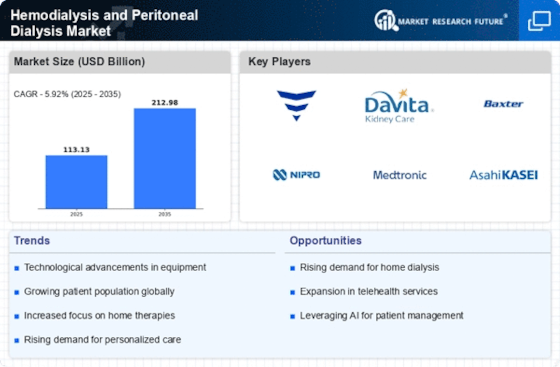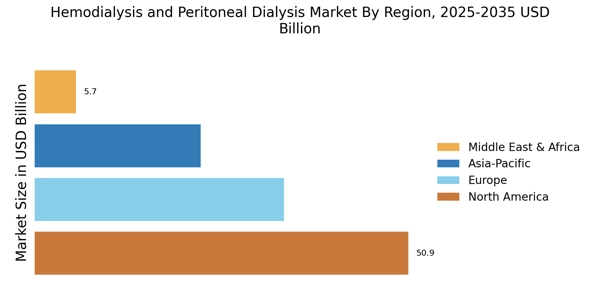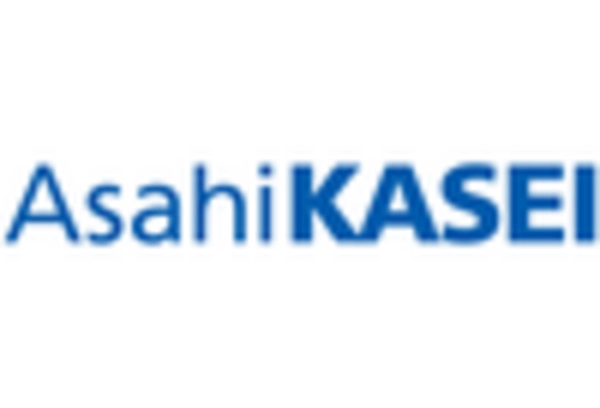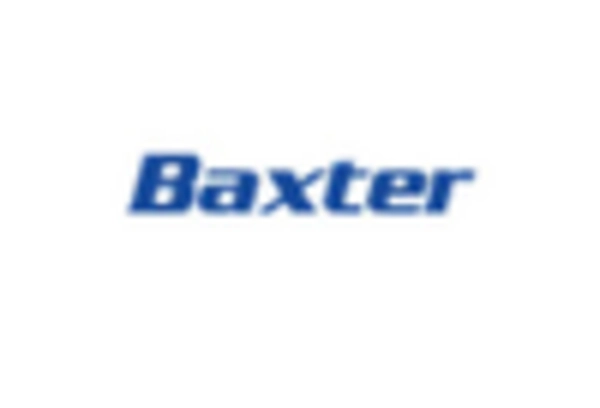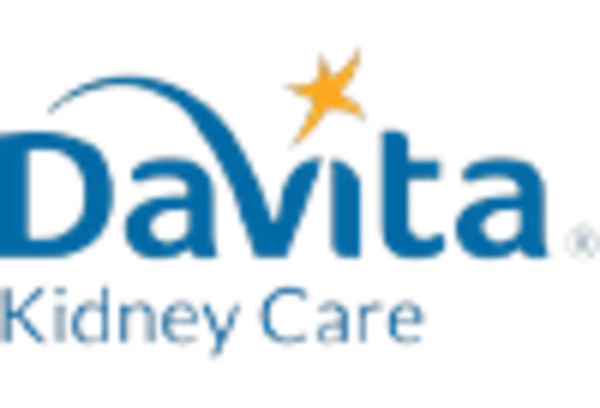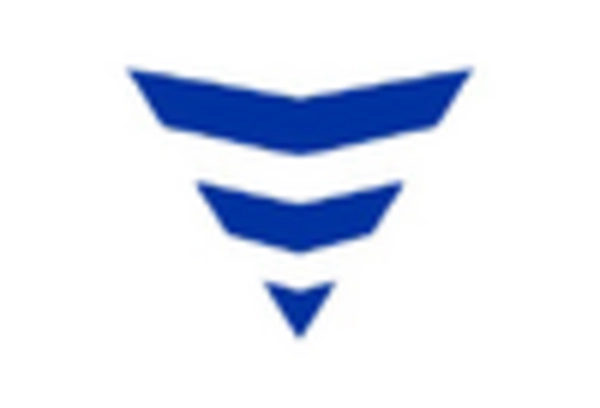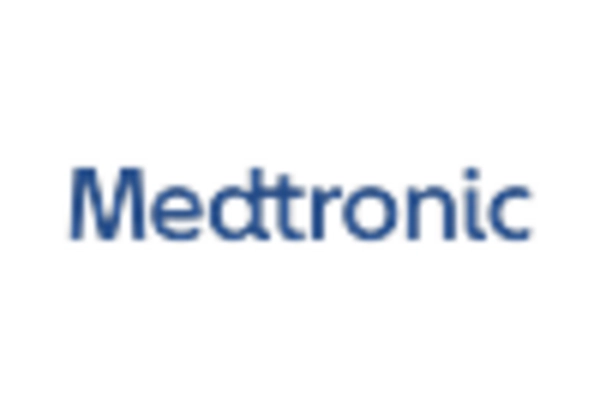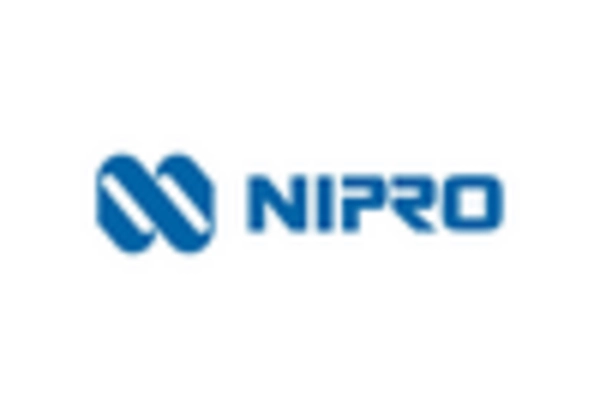Increasing Prevalence of Kidney Diseases
The rising incidence of chronic kidney diseases (CKD) is a primary driver for the Hemodialysis and Peritoneal Dialysis Market. According to recent statistics, approximately 10% of the population worldwide is affected by CKD, leading to a growing demand for dialysis treatments. This trend is particularly pronounced in aging populations, where the prevalence of kidney-related ailments tends to escalate. As healthcare systems strive to manage this increasing burden, investments in dialysis infrastructure and technology are likely to expand. Furthermore, the need for effective renal replacement therapies is expected to propel the market forward, as healthcare providers seek to offer comprehensive solutions for patients suffering from kidney dysfunction.
Shift Towards Home-Based Dialysis Solutions
The shift towards home-based dialysis solutions is reshaping the Hemodialysis and Peritoneal Dialysis Market. Patients increasingly prefer the convenience and flexibility of receiving treatment in their own homes, which has led to a rise in the adoption of peritoneal dialysis. Market analysis reveals that home dialysis therapies are expected to account for a larger share of the overall dialysis market, driven by patient preferences and advancements in technology. This transition not only enhances the quality of life for patients but also reduces the burden on healthcare facilities. As a result, healthcare providers are likely to expand their offerings of home dialysis options, further propelling market growth.
Rising Awareness and Education on Kidney Health
Rising awareness and education regarding kidney health are pivotal in driving the Hemodialysis and Peritoneal Dialysis Market. Public health campaigns and initiatives aimed at educating individuals about the risks of kidney diseases are fostering early detection and treatment. Increased awareness leads to more individuals seeking medical advice and, consequently, a higher demand for dialysis services. Furthermore, healthcare professionals are emphasizing the importance of regular screenings and lifestyle modifications to prevent kidney-related issues. This proactive approach is likely to contribute to a growing patient population requiring dialysis, thereby stimulating market growth in the coming years.
Technological Innovations in Dialysis Equipment
Technological advancements in dialysis equipment are significantly influencing the Hemodialysis and Peritoneal Dialysis Market. Innovations such as portable dialysis machines and automated peritoneal dialysis systems are enhancing patient convenience and treatment efficacy. The introduction of smart technology, including remote monitoring and data analytics, allows healthcare providers to optimize treatment plans and improve patient outcomes. Market data indicates that the demand for advanced dialysis equipment is projected to grow at a compound annual growth rate (CAGR) of over 6% in the coming years. This trend suggests that manufacturers are likely to invest heavily in research and development to meet the evolving needs of patients and healthcare providers.
Government Initiatives and Support for Dialysis Services
Government initiatives and support for dialysis services play a crucial role in shaping the Hemodialysis and Peritoneal Dialysis Market. Many governments are implementing policies to improve access to dialysis treatments, particularly in underserved regions. Financial assistance programs and subsidies for dialysis patients are becoming more common, which enhances affordability and accessibility. Additionally, regulatory frameworks are evolving to ensure the quality and safety of dialysis services. Market data suggests that these initiatives are likely to lead to an increase in the number of dialysis centers and services available, ultimately benefiting patients and driving market expansion.


